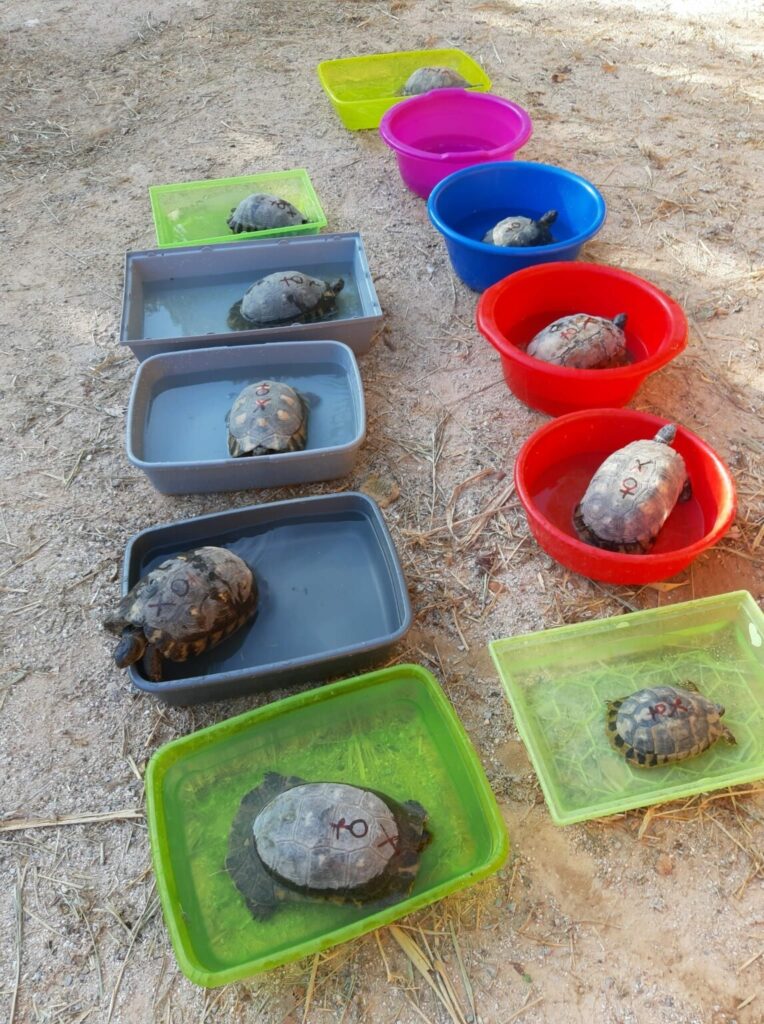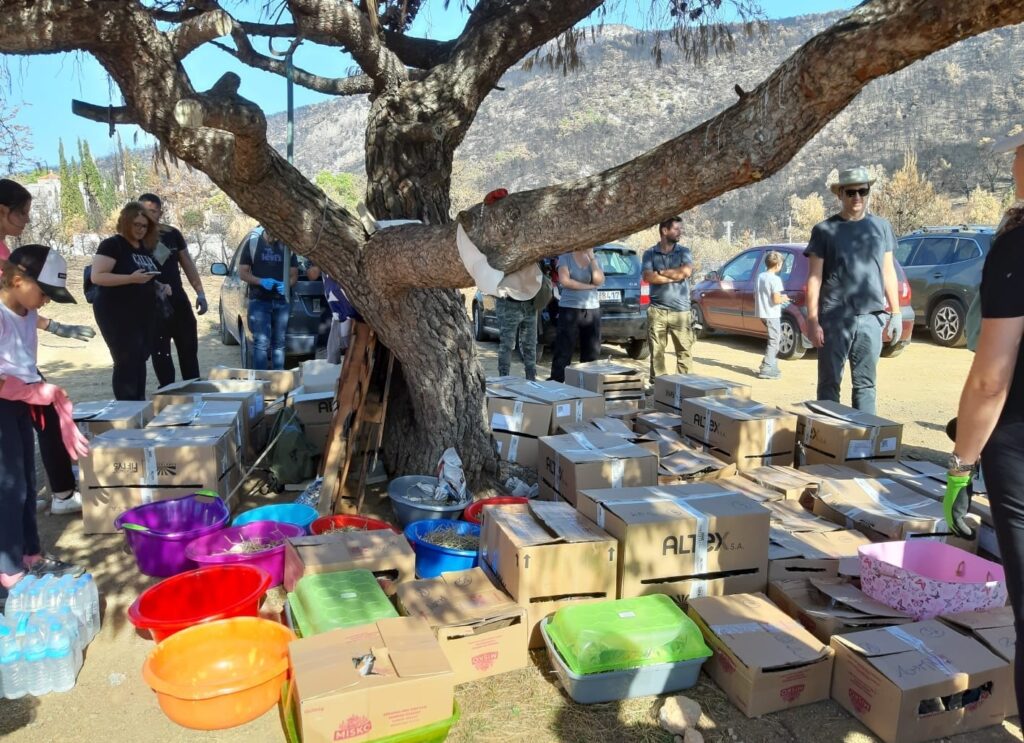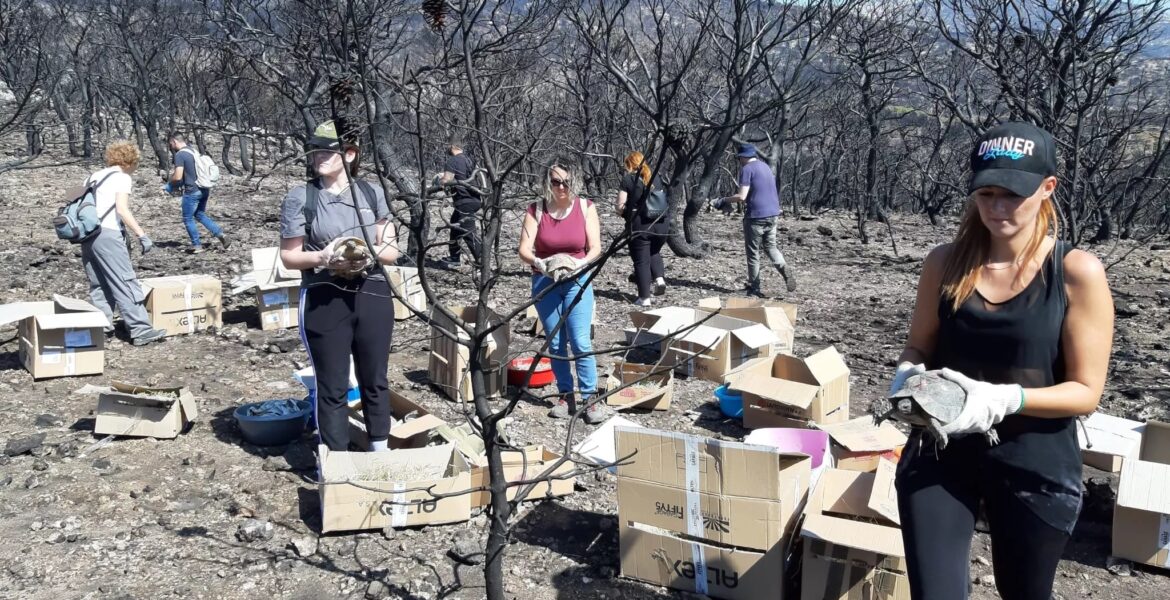The wonderful Parnitha is a unique ecosystem. Known for its enormous biodiversity, it is home to dozens of rare plants (it includes almost 1/6 of the total number of plants in Greece) and many endangered animals, such as deer, wolves, and endangered birds of prey.
The fire a year ago caused massive destruction after burning about 30,000 acres.
This year's fire devastation was also massive. Scientists examined the satellite data and assessed the fire, the 12th to break out on the mountain since 2007. According to the analysis of Sentinel-2, VIIRS and MODIS satellite images, the burned area amounts to 64,330 hectares, 47% of which is within the Mount Parnitha Protected Area.
This year's animals burned in the fire are impossible to count—deer, foxes, wolves, dogs, turtles and more.
Volunteer animal lovers were again this year on the front line of rescue. Often at the risk of their own lives, they entered the places of the fire and freed animals that were impossible to find a way out. In these cases, the most wronged animal is the turtle, To Pet Mou reported.
The turtle cannot run to save itself, so it unfortunately has no hope in such a situation.

The volunteers picked up injured and burned turtles during and after the fire. The turtles were transported to ANIMA, where, once again this year, it was filled with wildlife in need.
The number of turtles was huge, and the organisation couldn't keep them all. So they transferred me to a place provided by the Attica Zoological Park, where they stayed for two months to recover and return to nature again. The Attica Zoological Park also took over their food.
As ANIMA reports, in the last few days, they were checked and cared for by French scientists from SOPTOM-CRCC who came to Greece with the support of the IFAW-International Fund for Animal Welfare and worked with ANIMA people for a week together.

And the great moment of their reintegration into nature has come. One hundred turtles were ready for the return. ANIMA's partners organised their return to nature, the people of Save Your Hood, who organised all the excursions in the affected areas.
So, a few days ago, a similar call was made on social media. On the reintegration day, the 100 turtles were transported to Parnitha with great care and safety and released into the wild. In the next few days, there will be other re-admissions.
And to the question of many about how the turtles will feed and find water in the burned areas, the people of ANIMA answered.
"As animals, turtles are particularly resistant and can withstand up to weeks without water and food. However, they were fed and watered by the volunteers. Finally, we expect the first rains. We already saw cyclamen and small fresh grass in some places," they said.

